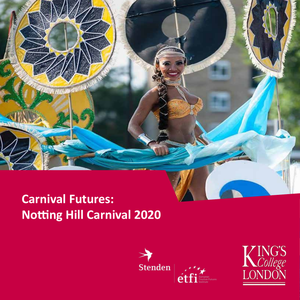This article examines how collaborative design practices in higher education are reshaped through postdigital entanglement with generative artificial intelligence (GenAI). We collectively explore how co-design, an inclusive, iterative, and relational approach to educational design and transformation, expands in meaning, practice, and ontology when GenAI is approached as a collaborator. The article brings together 19 authors and three open reviewers to engage with postdigital inquiry, structured in three parts: (1) a review of literature on co-design, GenAI, and postdigital theory; (2) 11 situated contributions from educators, researchers, and designers worldwide, each offering practice-based accounts of co-design with GenAI; and (3) an explorative discussion of implications for higher education designs and futures. Across these sections, we show how GenAI unsettles assumptions of collaboration, knowing, and agency, foregrounding co-design as a site of ongoing material, ethical, and epistemic negotiation. We argue that postdigital co-design with GenAI reframes educational design as a collective practice of imagining, contesting, and shaping futures that extend beyond human knowing.
MULTIFILE
In light of increasing cashlessness, platform economies, Open Banking APIs, financial bots and cryptocurrencies, money is on the move - once inert, money is gaining agency, becoming programmable, automated, data-driven and part of 'more than human' infrastructures. These financial futures demand that designers engage with difficult questions of economy and value, while retaining a sensibility to the many subtle and social qualities of money and our everyday economic interactions. This one-day workshop will therefore bring together practitioners and researchers to explore design challenges related to four broad themes: Designing with Transactional Data; Designing Alternative Representations of Value; Money, Automation, Power, and Control; and Financial Futures with Vulnerable Users. Developing scenarios related to these themes, the workshop will cultivate a rich design space to establish the value of design-led research in shaping our financial futures.
MULTIFILE

In the last month, the Visual Methodologies Collective participated in Regenerative Futures, a month-long design challenge to envision what a more desirable future could look like. Launched by SPACE10, a research and design lab based in Copenhagen, the call invited to use different AI generative models to develop a vision of the future home, community, or city.The call invited to reflect on different speculative briefs: resilient futures (How will future communities co-exist with non-human species? And how might the design of our homes and communities nurture surrounding ecosystems?), symbiotic futures (As we look to the future, how can we design homes as spaces of refuge and resilience? How will they flex to sudden climatic changes, while being conscious of the land and ecology around them?) collective futures (What would a self-sustaining city look like? How can we adapt and evolve existing structures and streets to better support collective living?)
MULTIFILE
Deze publicatie richt zich vooral op het concept Design Based Research,gezien vanuit het perspectief van de bijna 40 lectoren die de hogeschool rijk is. Dit lectoratenoverzicht kan worden beschouwd als een atlas of reisgids waarmee de lezer een route kan afleggen langs de verschillende lectoraten. De lectoraten die actief zijn op het gebied van de Service Economy worden beschreven in hoofdstuk 2. De lectoraten die actief zijn op het gebied van Vitale Regio worden beschreven in hoofdstuk 3. De lectoraten die actief zijn op het gebied van Smart Sustainable Industries worden beschreven in hoofdstuk 4. De lectoraten die actief zijn op het gebied van de hogeschoolbrede thema’s Design Based Education en Research worden beschreven in hoofdstuk 5. Tenslotte wordt er in hoofdstuk 6 een eerste aanzet gedaan om één of meer verbindende thema’s of werkwijzen te ontdekken in de aanpak van de verschillende lectoraten. Het is niet de bedoeling van deze publicatie om een definitief antwoord te geven op de vraag wat NHL Stenden precies bedoelt met het concept Design Based Research. Het doel van deze publicatie is wel om een indruk te krijgen van wat er allemaal gebeurt binnnen de lectoraten van NHL Stenden, en om nieuwsgierig te worden naar meer.
DOCUMENT

De dissertatie "Probing Futures, Acting Today" van Caroline Maessen onderzoekt hoe organisaties alternatieve toekomsten kunnen verbeelden om dagelijkse toekomstvormende praktijken te veranderen teneinde complexe maatschappelijke uitdagingen aan te pakken. Organisaties hebben de neiging door lineair denken hun verbeeldingsvermogen te beperken tot conventionele toekomsten, wat effectieve reacties op problemen zoals klimaatverandering en sociale ongelijkheid belemmert. Het gevolg is dat na de zoveelste heisessie voor visieontwikkeling, er nog steeds niets fundamenteel verandert. Hoe de toekomst zich ontvouwt, tegen de achtergrond van maatschappelijke complexe problemen, gaat vaak voorbij onze collectieve verbeeldingskracht. Organisaties hebben moeite om zich te verbinden met onconventionele toekomsten en acties in het heden daarop af te stemmen. Voor betekenisvolle verandering moeten organisaties navigeren tussen de aantrekkingskracht van inspirerende onconventionele toekomsten en de behoefte aan stabiliteit en controle. Maessen heeft in twee (semi) publieke organisaties onderzocht waarom dit zo lastig is en hoe organisaties daarin ondersteund kunnen worden.
DOCUMENT

Keynote speech based on IJDAS paper / curated Issue 2 Vol 2.
DOCUMENT
DOCUMENT
Carnival Futures: Notting Hill Carnival 2020 is a King’s Cultural Institute project led by Nicole Ferdinand (Culture, Media and Creative Industries at King’s College London) which sought to engage cultural organisations and other stakeholders in planning for the future of the Notting Hill Carnival. The content of this report is intended as a contribution to current research and to identifying future directions for the development of the Notting Hill Carnival. The material and views expressed are produced by various stakeholders in a series of workshops.
DOCUMENT
